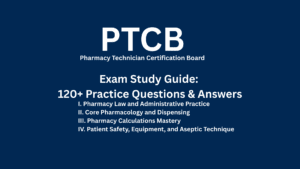
What Defines a Low-Stress Medical Job?
Low-stress healthcare careers typically share several key characteristics that distinguish them from high-pressure medical roles. Here are what you should look for in your next medical role:
- Predictable Working Hours: Most low-stress medical roles, like a medical biller, offer regular business hours or structured schedules. These roles typically avoid the unpredictable shifts and overtime common in emergency medicine or intensive care settings.
- Lower Patient Acuity: These roles often involve working with patients who have non-urgent conditions or focus on preventive care rather than life-threatening emergencies.
- Higher Control: Professionals in these positions typically have significant autonomy over their daily tasks and decision-making processes.
- Minimal Exposure to Trauma: Unlike emergency medicine or surgery, these careers involve limited exposure to high-stakes situations or traumatic events.
Supportive Work Environment: Many low-stress medical roles operate in collaborative, well-resourced environments with adequate staffing and administrative support, even if you’re working remotely.
Medical Fields with Low Burnout Rate
For those pursuing physician careers, certain medical specialties report significantly lower burnout rates:
- Public Health & Preventive Medicine: 37%
- Pathology: 39%
- Dermatology: 49%
- Ophthalmology: 48%
- Physical Medicine & Rehabilitation: 47%
Entry-Level Low-Stress Medical Careers
If you’re just beginning the working phase of your life or switching to a healthcare role, these are excellent, low-stress entry-level options:
1. Medical Records Technician
Medical records technicians represent one of the lowest-stress medical careers with decent earning potential. As a medical record technician, you’d work primarily with computers, updating patient records with minimal customer interaction or emergency situations. The best part? This role requires only a high school diploma and certification, making it accessible for career changers.
Learn how you can land a job as a medical records technician.
- Salary: $44,324 per year
- Education Requirement: High school diploma or GED required
- Certification: Certified Professional Coder (CPC)
2. Medical Assistant
This role provides an excellent entry point into the healthcare industry without much stress. Additionally, as a medical assistant, you’d also have a narrow scope of practice with simple, low-risk procedures. Typically, this role requires only a high school education and training certification.
Learn how to become a medical assistant.
- Salary: $44,200 per year
- Education Requirement: High school diploma or GED required
- Certification: Certified Medical Administrative Assistant (CMAA)
3. Pharmacy Technician
Pharmacy technicians usually work in retail pharmacies or hospitals during regular business hours. While you may occasionally work night shifts in hospitals, they are generally relatively stress-free.
You’d be working directly under a pharmacist’s supervision, and your role would involve organizing medications and helping patients fill prescriptions.
Learn how to become a pharmacy technician.
- Salary: $43,460 per year
- Education Requirement: High school diploma or GED required
- Certification: PTCB or ExCPT
High-Paying, Low-Stress Medical Careers
Now, let’s explore more advanced roles, which may require additional education and training; however, these also pay more:
4. Medical Dosimetrist
Medical dosimetrists represent one of the highest-paying, low-stress medical careers. Your typical duties as a medical dosimetrist would include calculating radiation doses for cancer patients and developing treatment plans.
Moreover, this role is mostly remote, so you can work from the comfort of your own home.
Becoming a medical dosimetrist requires a bachelor’s degree and specialized certification.
- Salary: $138,110 per year
- Education Requirement: Bachelor’s degree in medical dosimetry or a related field required
- Certification: Medical Dosimetrist Certification Board (MDCB)
5. Pharmacist
If you’re already working as a pharmacy technician, then you can advance your career as a pharmacist with relative ease.
Much like a pharma tech, this advanced role is also low-stress in a controlled work environment.
While you do have to interact with patients and healthcare providers, you’d have extensive resources and support systems to help you make informed decisions about medications.
Do keep in mind that this role requires a doctorate degree but offers job security and predictable hours.
- Salary: $137,480 per year
- Education Requirement: Doctor of Pharmacy (PharmD) required
- Certification: Multistate Pharmacy Jurisprudence Examination (MPJE)
6. Nurse Educator
Practicing nurses definitely earn more, but they are also prone to significantly high stress levels that negatively impact their quality of life. Therefore, roles like nurse educators combine clinical expertise with teaching to offer a happy medical career.
Nurse educators work standard weekday hours with minimal shift work, focusing on curriculum development and student mentorship rather than direct patient care. This career path offers high job satisfaction with less exposure to high-pressure clinical situations
- Salary: $95,274 per year
- Education Requirement: Master of Science in Nursing (MSN) or related degree required
- Certification: Certified Nurse Educator (CNE) certification
7. Histotechnologist
The salary potential of histotechnologists depends on the setting in which they work. You can earn up to $100,000, particularly in unionized hospital settings. One Reddit user reported making $100,000 at Kaiser in California, describing the job as “low stress, easy on your body, low educational requirements”.
Which is true, as a histotechnologist, you’d be working in laboratories preparing tissue samples for pathologists, with minimal patient interaction and regular hours.
- Salary: $90,000 per year
- Education Requirement: A bachelor’s degree in a science-related field is required
- Certification: American Society for Clinical Pathology (ASCP) Board of Certification
8. Occupational Therapist
So far, all the roles mentioned offer minimal patient interaction. Therefore, if you are interested in interacting with patients and making a difference, then occupational therapy is for you.
As an occupational therapist, you’d enjoy a highly rewarding work, i.e., helping patients regain function after illness or injury. This often involves using games and interactive activities with patients, creating a positive work environment. The role requires a master’s degree and state licensing, but offers excellent job satisfaction and growth opportunities
- Salary: $98,340 per year
- Education Requirement: Master of Occupational Therapy (MOT) or Doctor of Occupational Therapy (OTD) required
- Certification: National Board for Certification in Occupational Therapy (NBCOT)
NOTE: Being an occupational therapist requires immense emotional and physical patience. It is best to consider that before committing to this role.
9. Speech-Language Pathologist
Another high-earning, low-stress healthcare role that makes an impact on patients’ lives is that of a speech-language pathologist. In this, you’d work with both children and adults to help them improve communication and swallowing abilities.
Your work environment will typically include rehabilitation centers, schools, or private practice settings with minimal day-to-day stress.
- Salary: $95,410 per year
- Education Requirement: Communication Sciences and Disorders (CSD) or a related field required
- Certification: SLP Certificate by American Speech-Language-Hearing Association (ASHA)
10. Audiologist
Audiologists diagnose and treat hearing and balance disorders. What makes this role relatively low stress is that you’d work standard weekday hours with predictable schedules, focusing on non-urgent conditions like hearing protection and tinnitus management.
- Salary: $92,120 per year
- Education Requirement: Doctor of Audiology (AuD) degree required
- Certification: Certifications from ABA or ASHA
11. Optometrist
Optometrists enjoy regular hours with minimal overtime, working an average of 40 hours per week. Primarily, they focus on routine eye care and vision correction, with urgent situations being rare. The role offers high autonomy and the opportunity to work in private practice
- Salary: $134,830 per year
- Education Requirement: Doctor of Optometry (OD) degree required
- Certification: National Board of Examiners in Optometry (NBEO)
12. Dental Hygienist
Dental hygienists are ranked among the top jobs for work-life balance. This is because dental hygienists work in dental office hours, seeing 6-10 patients daily with predictable routines and minimal emergencies.
Many positions offer part-time flexibility as well, making this career ideal for work-life balance.
- Salary: $94,260 per year
- Education Requirement: Associate’s or Bachelor’s degree required
- Certification: Commission on Dental Accreditation (CODA)
Considerations for Career Changers
Before you commit to a low-stress healthcare role, it is important to consider a few things.
Financial Expectations: While many low-stress medical careers offer competitive salaries, it’s important to research local market conditions and the cost of living. Some roles, like health education, may have lower starting salaries but offer significant personal satisfaction and growth potential.
Educational Investment: Consider the time and financial investment required for different roles. Entry-level positions like medical assistant or pharmacy technician require minimal education, while roles like pharmacist or occupational therapist require advanced degrees. Get ready for entry-level healthcare roles with CCI Training Center Allied Health Programs.
Geographic Factors: Salary and job availability can vary significantly by location. Urban areas may offer higher salaries but also higher living costs, while rural areas may have different opportunities and compensation structures.
Ultimately, low-stress medical careers offer an excellent pathway into healthcare for those seeking meaningful work without sacrificing personal well-being.
Program Offered
- Pharmacy Technician Training
- Online Medical Assistant
- Medical Billing and Coding Specialist Program
- Cloud Computing Technician Training
- Computer Network Technician
- Business and Accounting
- Radiology Technician Training
- Medical Assistant Program
- Computer Support Technician
- Cybersecurity Program
- Virtual Assistant Training

This article is written by
Share this article

What Defines a Low-Stress Medical Job?
Low-stress healthcare careers typically share several key characteristics that distinguish them from high-pressure medical roles. Here are what you should look for in your next medical role:
- Predictable Working Hours: Most low-stress medical roles, like a medical biller, offer regular business hours or structured schedules. These roles typically avoid the unpredictable shifts and overtime common in emergency medicine or intensive care settings.
- Lower Patient Acuity: These roles often involve working with patients who have non-urgent conditions or focus on preventive care rather than life-threatening emergencies.
- Higher Control: Professionals in these positions typically have significant autonomy over their daily tasks and decision-making processes.
- Minimal Exposure to Trauma: Unlike emergency medicine or surgery, these careers involve limited exposure to high-stakes situations or traumatic events.
Supportive Work Environment: Many low-stress medical roles operate in collaborative, well-resourced environments with adequate staffing and administrative support, even if you’re working remotely.
Medical Fields with Low Burnout Rate
For those pursuing physician careers, certain medical specialties report significantly lower burnout rates:
- Public Health & Preventive Medicine: 37%
- Pathology: 39%
- Dermatology: 49%
- Ophthalmology: 48%
- Physical Medicine & Rehabilitation: 47%
Entry-Level Low-Stress Medical Careers
If you’re just beginning the working phase of your life or switching to a healthcare role, these are excellent, low-stress entry-level options:
1. Medical Records Technician
Medical records technicians represent one of the lowest-stress medical careers with decent earning potential. As a medical record technician, you’d work primarily with computers, updating patient records with minimal customer interaction or emergency situations. The best part? This role requires only a high school diploma and certification, making it accessible for career changers.
Learn how you can land a job as a medical records technician.
- Salary: $44,324 per year
- Education Requirement: High school diploma or GED required
- Certification: Certified Professional Coder (CPC)
2. Medical Assistant
This role provides an excellent entry point into the healthcare industry without much stress. Additionally, as a medical assistant, you’d also have a narrow scope of practice with simple, low-risk procedures. Typically, this role requires only a high school education and training certification.
Learn how to become a medical assistant.
- Salary: $44,200 per year
- Education Requirement: High school diploma or GED required
- Certification: Certified Medical Administrative Assistant (CMAA)
3. Pharmacy Technician
Pharmacy technicians usually work in retail pharmacies or hospitals during regular business hours. While you may occasionally work night shifts in hospitals, they are generally relatively stress-free.
You’d be working directly under a pharmacist’s supervision, and your role would involve organizing medications and helping patients fill prescriptions.
Learn how to become a pharmacy technician.
- Salary: $43,460 per year
- Education Requirement: High school diploma or GED required
- Certification: PTCB or ExCPT
High-Paying, Low-Stress Medical Careers
Now, let’s explore more advanced roles, which may require additional education and training; however, these also pay more:
4. Medical Dosimetrist
Medical dosimetrists represent one of the highest-paying, low-stress medical careers. Your typical duties as a medical dosimetrist would include calculating radiation doses for cancer patients and developing treatment plans.
Moreover, this role is mostly remote, so you can work from the comfort of your own home.
Becoming a medical dosimetrist requires a bachelor’s degree and specialized certification.
- Salary: $138,110 per year
- Education Requirement: Bachelor’s degree in medical dosimetry or a related field required
- Certification: Medical Dosimetrist Certification Board (MDCB)
5. Pharmacist
If you’re already working as a pharmacy technician, then you can advance your career as a pharmacist with relative ease.
Much like a pharma tech, this advanced role is also low-stress in a controlled work environment.
While you do have to interact with patients and healthcare providers, you’d have extensive resources and support systems to help you make informed decisions about medications.
Do keep in mind that this role requires a doctorate degree but offers job security and predictable hours.
- Salary: $137,480 per year
- Education Requirement: Doctor of Pharmacy (PharmD) required
- Certification: Multistate Pharmacy Jurisprudence Examination (MPJE)
6. Nurse Educator
Practicing nurses definitely earn more, but they are also prone to significantly high stress levels that negatively impact their quality of life. Therefore, roles like nurse educators combine clinical expertise with teaching to offer a happy medical career.
Nurse educators work standard weekday hours with minimal shift work, focusing on curriculum development and student mentorship rather than direct patient care. This career path offers high job satisfaction with less exposure to high-pressure clinical situations
- Salary: $95,274 per year
- Education Requirement: Master of Science in Nursing (MSN) or related degree required
- Certification: Certified Nurse Educator (CNE) certification
7. Histotechnologist
The salary potential of histotechnologists depends on the setting in which they work. You can earn up to $100,000, particularly in unionized hospital settings. One Reddit user reported making $100,000 at Kaiser in California, describing the job as “low stress, easy on your body, low educational requirements”.
Which is true, as a histotechnologist, you’d be working in laboratories preparing tissue samples for pathologists, with minimal patient interaction and regular hours.
- Salary: $90,000 per year
- Education Requirement: A bachelor’s degree in a science-related field is required
- Certification: American Society for Clinical Pathology (ASCP) Board of Certification
8. Occupational Therapist
So far, all the roles mentioned offer minimal patient interaction. Therefore, if you are interested in interacting with patients and making a difference, then occupational therapy is for you.
As an occupational therapist, you’d enjoy a highly rewarding work, i.e., helping patients regain function after illness or injury. This often involves using games and interactive activities with patients, creating a positive work environment. The role requires a master’s degree and state licensing, but offers excellent job satisfaction and growth opportunities
- Salary: $98,340 per year
- Education Requirement: Master of Occupational Therapy (MOT) or Doctor of Occupational Therapy (OTD) required
- Certification: National Board for Certification in Occupational Therapy (NBCOT)
NOTE: Being an occupational therapist requires immense emotional and physical patience. It is best to consider that before committing to this role.
9. Speech-Language Pathologist
Another high-earning, low-stress healthcare role that makes an impact on patients’ lives is that of a speech-language pathologist. In this, you’d work with both children and adults to help them improve communication and swallowing abilities.
Your work environment will typically include rehabilitation centers, schools, or private practice settings with minimal day-to-day stress.
- Salary: $95,410 per year
- Education Requirement: Communication Sciences and Disorders (CSD) or a related field required
- Certification: SLP Certificate by American Speech-Language-Hearing Association (ASHA)
10. Audiologist
Audiologists diagnose and treat hearing and balance disorders. What makes this role relatively low stress is that you’d work standard weekday hours with predictable schedules, focusing on non-urgent conditions like hearing protection and tinnitus management.
- Salary: $92,120 per year
- Education Requirement: Doctor of Audiology (AuD) degree required
- Certification: Certifications from ABA or ASHA
11. Optometrist
Optometrists enjoy regular hours with minimal overtime, working an average of 40 hours per week. Primarily, they focus on routine eye care and vision correction, with urgent situations being rare. The role offers high autonomy and the opportunity to work in private practice
- Salary: $134,830 per year
- Education Requirement: Doctor of Optometry (OD) degree required
- Certification: National Board of Examiners in Optometry (NBEO)
12. Dental Hygienist
Dental hygienists are ranked among the top jobs for work-life balance. This is because dental hygienists work in dental office hours, seeing 6-10 patients daily with predictable routines and minimal emergencies.
Many positions offer part-time flexibility as well, making this career ideal for work-life balance.
- Salary: $94,260 per year
- Education Requirement: Associate’s or Bachelor’s degree required
- Certification: Commission on Dental Accreditation (CODA)
Considerations for Career Changers
Before you commit to a low-stress healthcare role, it is important to consider a few things.
Financial Expectations: While many low-stress medical careers offer competitive salaries, it’s important to research local market conditions and the cost of living. Some roles, like health education, may have lower starting salaries but offer significant personal satisfaction and growth potential.
Educational Investment: Consider the time and financial investment required for different roles. Entry-level positions like medical assistant or pharmacy technician require minimal education, while roles like pharmacist or occupational therapist require advanced degrees. Get ready for entry-level healthcare roles with CCI Training Center Allied Health Programs.
Geographic Factors: Salary and job availability can vary significantly by location. Urban areas may offer higher salaries but also higher living costs, while rural areas may have different opportunities and compensation structures.
Ultimately, low-stress medical careers offer an excellent pathway into healthcare for those seeking meaningful work without sacrificing personal well-being.
Program Offered
- Pharmacy Technician Training
- Online Medical Assistant
- Medical Billing and Coding Specialist Program
- Cloud Computing Technician Training
- Computer Network Technician
- Business and Accounting
- Radiology Technician Training
- Medical Assistant Program
- Computer Support Technician
- Cybersecurity Program
- Virtual Assistant Training

This article is written by
Share this article
Program Offered
- Pharmacy Technician Training
- Online Medical Assistant
- Medical Billing and Coding Specialist Program
- Cloud Computing Technician Training
- Computer Network Technician
- Business and Accounting
- Radiology Technician Training
- Medical Assistant Program
- Computer Support Technician
- Cybersecurity Program
- Virtual Assistant Training

This article is written by
Share this article
Related Articles







CCI Training Center Proudly Completes
41 Years in Career Training Services










